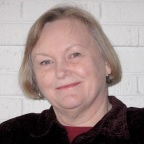Authored by Stephanie Ferrera, M.S.W.
What does the word “research” bring to mind for you? Images of scientists in lab coats, doing things with test tubes? Creating experiments with control groups? Data mapped on charts and graphs? That dreaded required course in college? A formidable enterprise to be sure.
For those who attended the CFC Fall Conference, “Integration of Research in Practice,” the word, “research” took on a larger meaning. Four Bowen theory researchers presented their studies, each illustrating a different and creative approach.
Catherine Rakow has done three decades of archival study and organization of Murray Bowen’s extensive letters, clinical records, and papers. She authored Making Sense of Human Life: Murray Bowen’s Determined Effort Toward Family Systems Theory. Those who study Bowen’s work come to know about the remarkable study he did in hospitalizing families with a schizophrenic member. Rakow added greatly to our knowledge of this with her presentation, “The Final Year of Murray Bowen’s NIMH Research Project—1958.” We learned about the larger institutional settings of NIMH and the hospital, and Bowen’s position within those systems as a psychiatrist introducing a radical new way of thinking with his focus on the family as an emotional unit. The presentation sparked awareness of what it is like for a scientist with a challenging new concept to face the reactivity and resistance that comes from an established field. Rakow documented the ways that Dr. Bowen was able to maintain his theoretical position amidst pressures from colleagues, and to navigate those relationships patiently and respectfully. A “determined effort” indeed.
Victoria Harrison has designed a model, titled “Observations of Change” that guides clinicians who are working on differentiation of self in their own families to trace the process and the changes in their functioning over time. It includes careful recording of their work, including expanding knowledge of multigenerational family history, the nodal events in the family, number of contacts with family members, and measures of physiological reactivity using biofeedback and neurofeedback. She presented a case study of three years of work by one individual. A summary of the data showed the gains that this individual made in increasing the quantity and quality of family relationships and in her ability to communicate thoughtfully in stressful situations. Surprisingly, the physiological measures of anxiety did not decrease simultaneously with improvement in her functioning. This finding sparked a discussion of the idea that we have the capacity to keep moving toward more differentiation in family and important relationships, even though we experience anxiety along the way.
Phillip Klever described the theoretical basis and design of his study of 51 couples who were in the early years of starting their families. With yearly questionnaires and interviews, he followed the functioning of their nuclear families and extended families over fifteen years. The families varied in the number of symptoms they experienced, and in their levels of anxiety and relationship patterns. With careful analysis of data, Klever was able to describe connections between family functioning and the intensity of the family emotional process, including marital conflict, triangles, family projection process, and multigenerational transmission. Bowen theory was the framework for understanding the complex factors that go into the wide variation seen in family functioning and stability.
Randall Frost describes the way that Bowen initially developed his theory through his clinical work with the families in the NIMH research. Disciplined observation of family interaction revealed repetitious patterns of functioning and gave Bowen the basis for defining the concept of differentiation of self and the other related concepts. Theory then becomes the guide to clinical practice. Frost illustrated the clinical research model he is developing with a videotape of an interview he did with a therapist he was coaching. It was fascinating to observe how the clinician’s understanding of differentiation of self and emotional fusion illuminated her observation of the family’s work in therapy. The basic underlying problem for the family was identified as emotional fusion. A familiar problem for us all.
Listening to four dedicated scholars describe the thinking and effort they put into their research was quite a privilege. My now-enlarged concept of research is that it is not only integrated into science and clinical work; it is integrated into life. To have a question, to search for facts, to broaden one’s perspective, to move from subjectivity toward objectivity, to make decisions and take action based on a deeper and more accurate understanding of the facts–this is research in the service of differentiation of self.




Leave a Reply